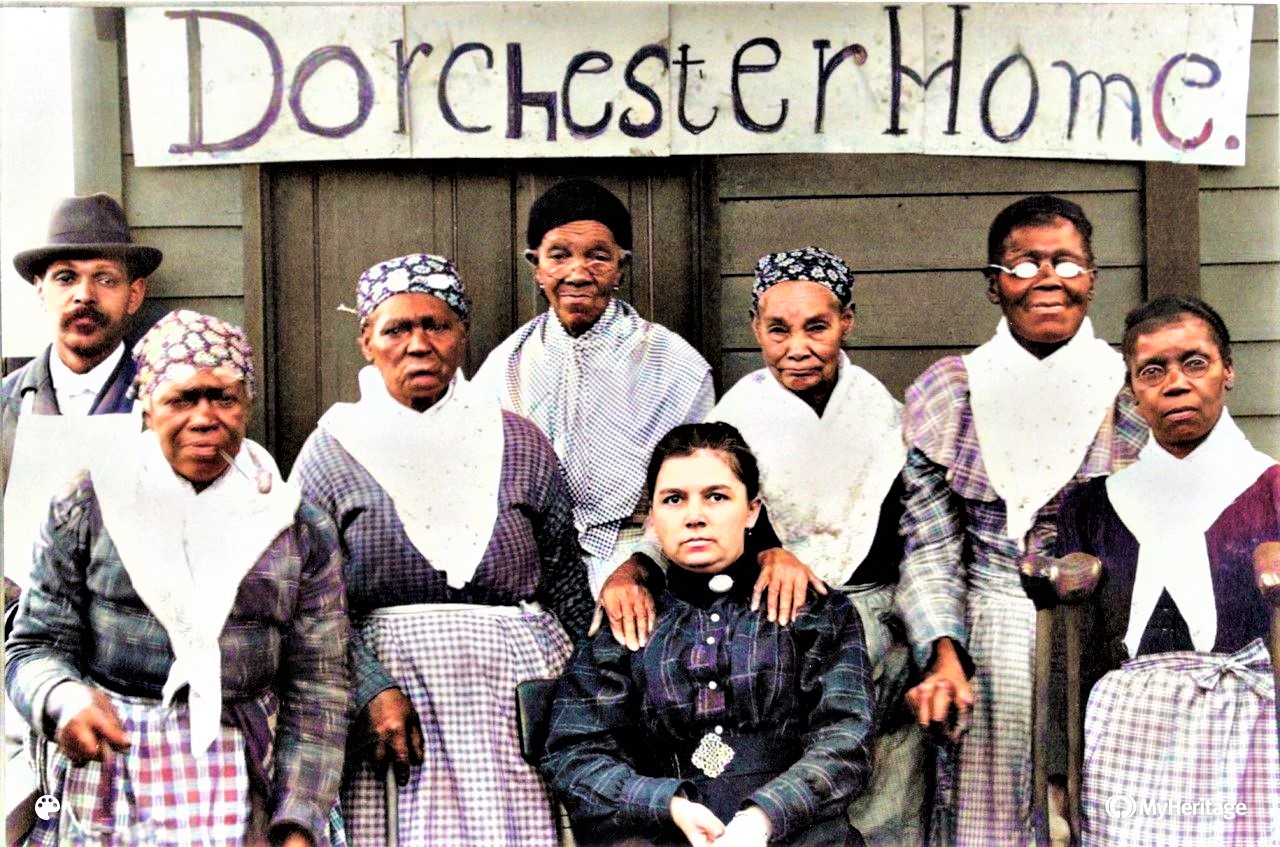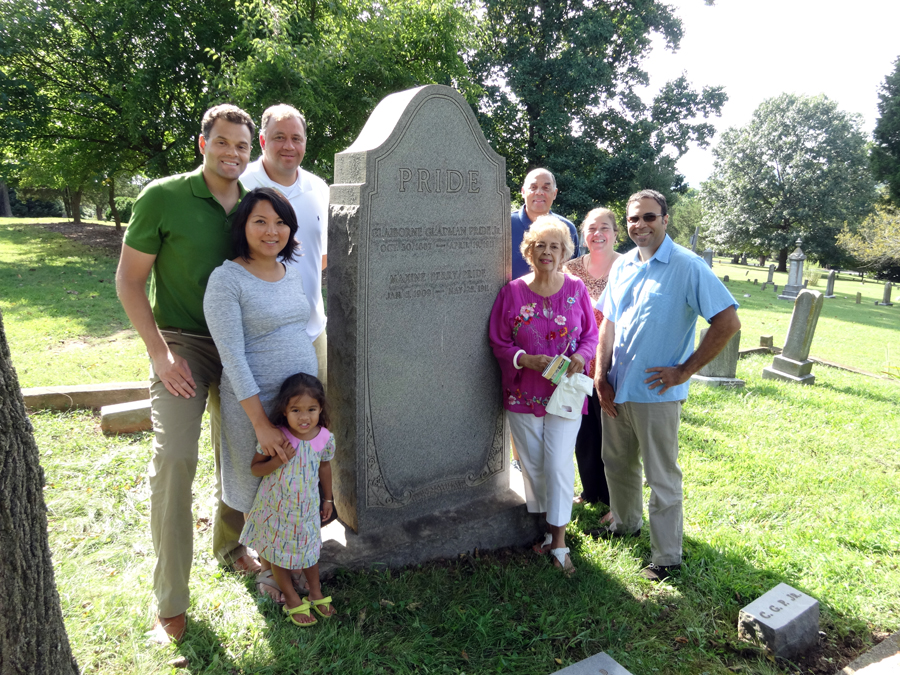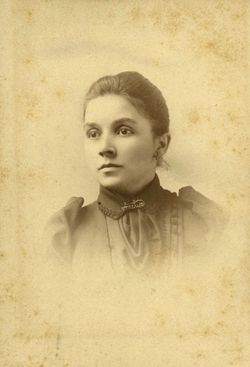The Pride Family
Armistead Pride Sr. (1787-1858), Claiborne Gladman Pride Sr. (1857-1933), & Amelia Elizabeth Perry Pride (March 27, 1857- June 4, 1932)
Plot Coordinates: (37.4149313, -79.1552640)
Pride family members over multiple generations have made substantial contributions to the life and growth of Lynchburg. We have chosen to share three of their stories, but encourage you to visit the Pride family plot to learn more.
Armistead Pride Sr., born a free person of color in 1787, was among the wealthiest and most prominent Black residents of Lynchburg. He was a barber at a time when barbers, in addition to cutting hair, performed dentistry and minor surgery and were afforded a measure of professional respect. Armistead was the first professional person to cup and leech and to pull teeth in Lynchburg. He made and sold his own line of hair tonics. When he died in 1858, he was remembered as a man who had character above reproach and a commanding presence.
Claiborne Gladman Pride Sr. and Amelia Perry were both born into prominent free Black families in 1857. Claiborne was a respected Lynchburg barber, the grandson of Armistead Pride, and the son of William Royall Pride, also a barber, and Lucinda Gladman Pride, whose father, Claiborne Gladman, was another prominent local barber. Claiborne and Amelia Perry married in 1881 and together worked to improve the lives of recently emancipated Black people. Despite being orphaned by age 16, Amelia was able to graduate from Hampton Normal and Agricultural Institute (now Hampton University) in 1879. After briefly teaching in the Norfolk public schools she returned to Lynchburg to begin a 30-year career teaching in the segregated Lynchburg city schools. For 21 of those years, she was principal of the Polk Street School.
Amelia Pride was an innovator and was among the first Black teachers in the Lynchburg city schools. True to the educational ethos at Hampton, she championed training in the “practical and industrial arts.” With the blessing of the city schools superintendent, she opened a free sewing school in the Polk Street School in 1898, and in 1903 a cooking school for Black children. These schools became the foundation for the city schools’ home economics programs
In 1897 Amelia, Claiborne and others founded The Dorchester Home (or “Old Folks Home”). Located on Pierce and Thirteenth Streets, it provided a secure home and practical skills training for aging formerly enslaved women.
In 1903 she founded the Theresa Pierce Cooking School for African American children of all ages. This was a place that children could attend to learn basic cooking skills and how to make certain meals.
Amelia also had a hand in the founding of Eighth Street Baptist Church. In all of her efforts, Amelia was supported by Claiborne.In addition to both of these, Amelia also established the Mackenzie Sewing School. A school for people of all ages to come and learn basic sewing techniques. Amelia was a cornerstone of the community and has a school named after her in Lynchburg.
The “Amelia Pride Homemaking Cottage” (known today as the Pride Center), was built in 1949 on the campus of Dunbar High School to house the school’s home economics department. Today it serves as the Lynchburg City Schools adult learning center.
References
Armistead Pride Sr.
Death of an Old Resident, Lynchburg Daily Virginian, 11/5/1858
Delaney, Ted and Phillip Wayne Rhodes, Free Blacks of Lynchburg, Virginia 1805-1865, Warwick House Publishing, 2001.
Claiborne Gladman Pride Sr.
Death of Wm. Royall Pride, The Daily Virginian, 6/24/1891
Death of William Royall Pride, an Honored and Aged Citizen, Daily Advance, 6/23/1891
Amelia Perry Pride
Delaney, Ted, Industry, Economy, and Pride: The Life and Work of Amelia Perry Pride, Lynch’s Ferry magazine, Spring/summer 2001.



